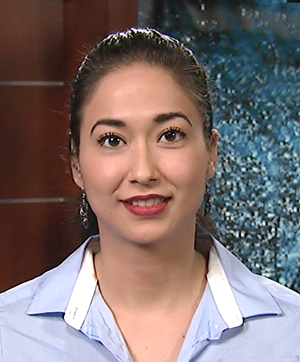Startup looks to Capitol Tech for research and development partnership
December 18, 2018Students at Capitol Technology University don’t just learn how to use existing technology – they help invent the technologies of the future. Case in point: pioneering new antennas being developed by a DC-area startup in collaboration with Capitol Tech.
GloMo, a research and development group specializing in wireless communications, has teamed up with the engineering program at Capitol Tech to experiment with new, digitally enhanced antennas that can pinpoint distant objects with unsurpassed precision.
Students selected for the project are working under the mentorship of Dr. Armen Gulian, a leading research scientist who has collaborated with Nobel laureates, supervised the world’s first observation of phase-slip centers in high-temperature superconductors, and assisted the U.S. Naval Research Laboratory in the development of quantum detectors. Dr. Gulian is the founder of Chapman University’s Advanced Physics Laboratory, and is also a member of the adjunct engineering faculty at Capitol.
Dr. Nayef Abu-Ageel, chair of the engineering program at Capitol Tech, says the opportunity for students is “huge.”
“This project allows them to work on cutting edge technology – innovations that are happening around them, at a rapid pace. Moreover, they are gaining valuable practice in communicating with a customer, as well as in writing proposals and applying for funding. They receive feedback from the customer regarding their work. They also receive a stipend for their efforts,” he said.
“The experience is helping them further develop their skills not only as engineers and researchers, but also in communications and other “soft skills,” which can be just as important,” Abu-Ageel said.
Nayessda Castro, who participated in the project while completing her master’s degree at Capitol, says she appreciated the experimental nature of the project.
“It was a different kind of antenna pattern than the ones I’m accustomed to, and so it wasn’t immediately clear to me that the design would work,” says Castro, a NASA engineer and mission control team member at the Goddard Space Flight Center. “It was great to go through the process of building a reference model in class. There was a lot of collaborative effort – we were, in effect, pooling each other’s expertise, identifying who had experience with this kind of frequency, for example. We were really able to collaborate in a way that tapped each other’s expertise.”
While companies regularly partner with universities on research and development, many larger schools are inaccessible to small startups like GloMo, noted the company’s chief operating officer, Tom Neff.
“We had talked to some other schools, including Carnegie-Mellon, University of Washington, and University of Idaho, but for them we were a small fish in a big pond,” Neff said. “They wanted big chunks of money and it just wasn’t going anywhere.”
Meanwhile, managing director James Wills suggested reaching out to Capitol Tech. He was familiar with the school’s track record and its practical approach to education – in fact, he’s a Capitol Tech alumnus himself.
The results have been a win-win for the company, the school, and the students.
“The antenna development that we are collaborating with Capitol Tech on is a key enabler for our product line,” Wills said. “We have been very impressed with the work that the students have been doing and the innovation that Dr. Gulian has brought to the project is outstanding. For the investment that we’re making here, we’re just seeing a great level of innovation. The ability to make products out of that is a tremendous return on investment."
Neff agrees. “When we found Capitol Tech it was the right-sized fish for the right-sized pond. It’s been so easy to work with Capitol. We’re getting unbelievable value from this partnership,” he said.



